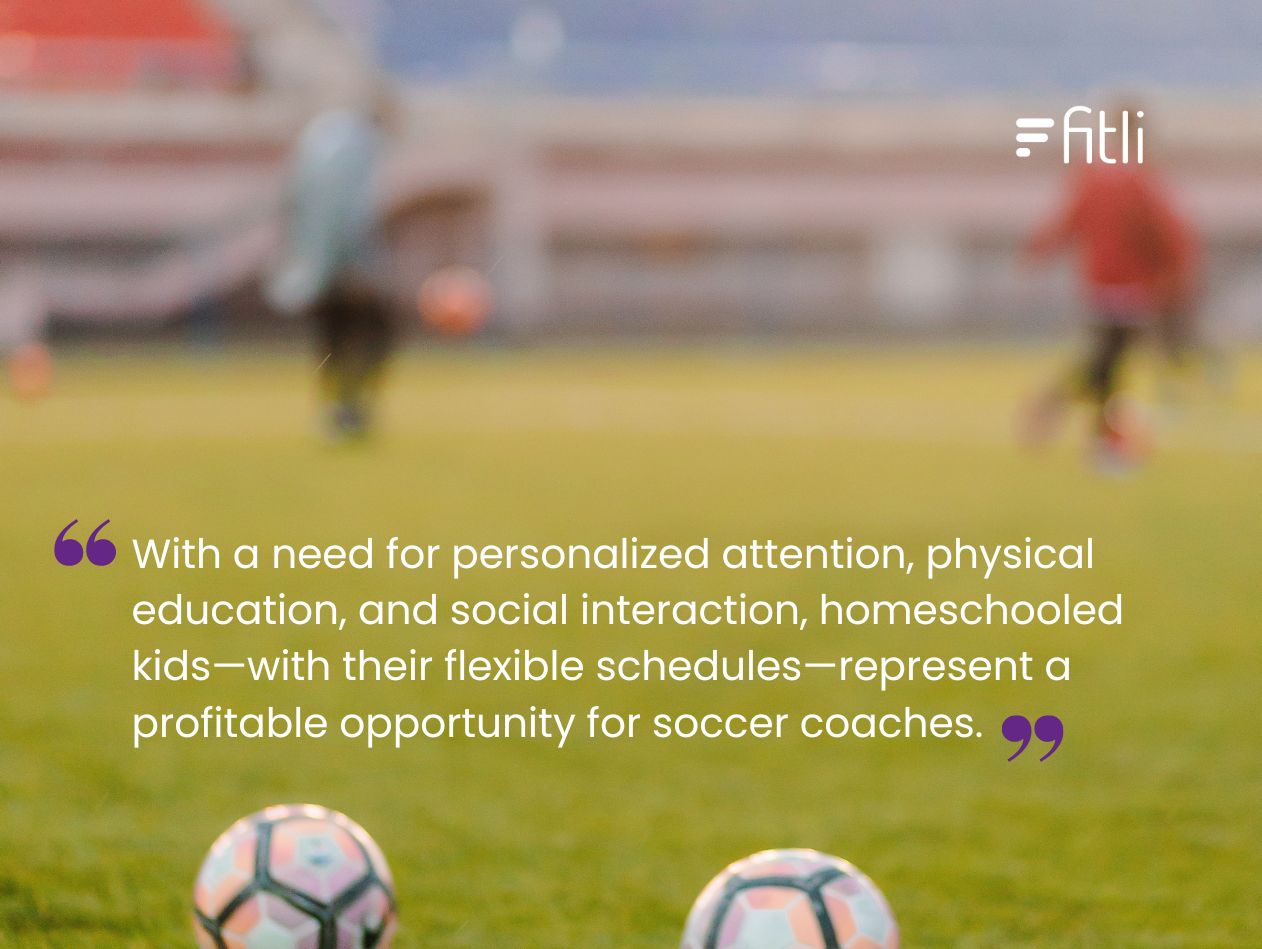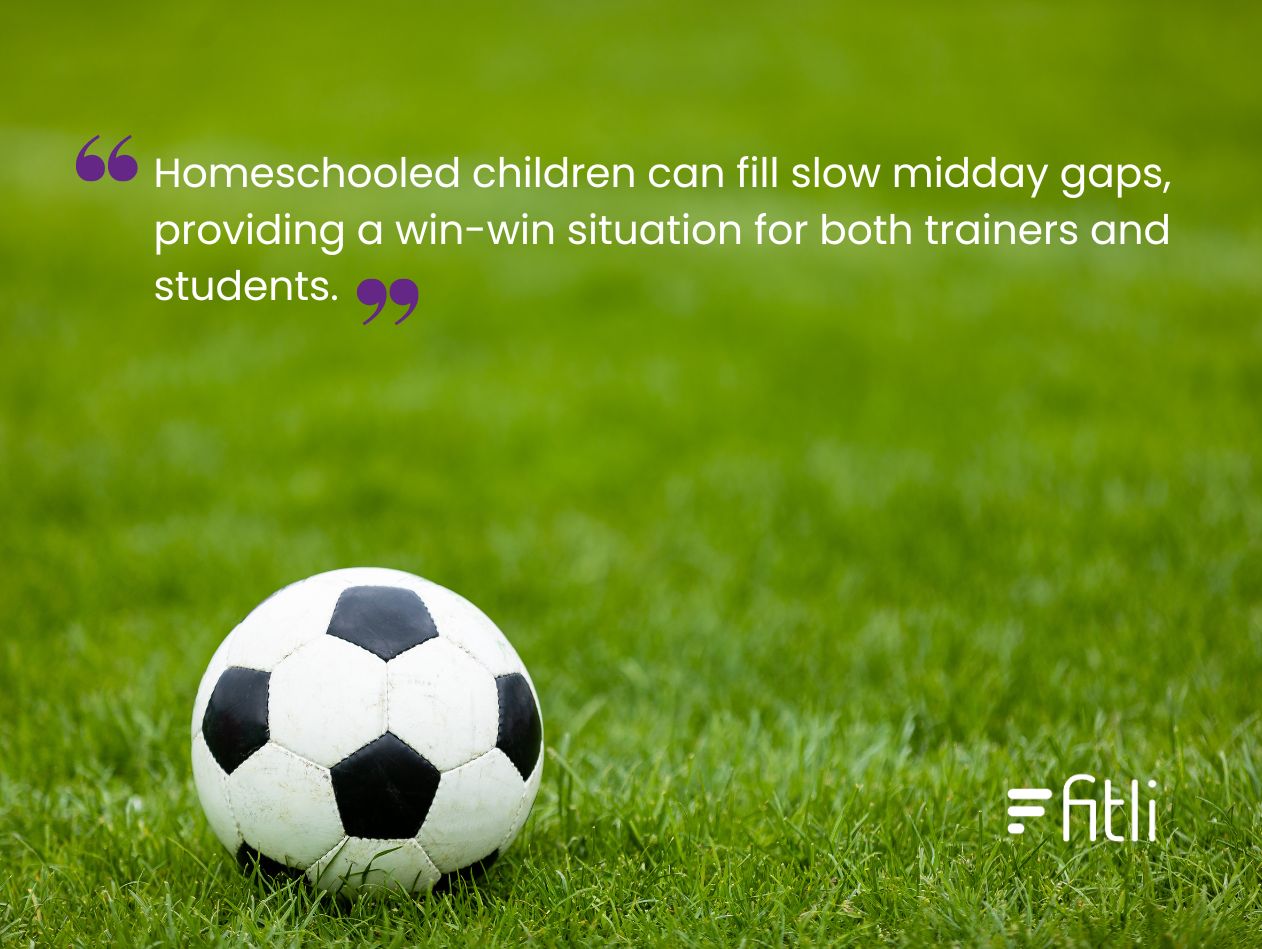Homeschooling is not a new concept but it has seen a significant rise in popularity over the past few years. With a flexible schedule and more control over curriculum, parents still look for suitable avenues of physical education. Now this is where personal soccer trainers have the chance to find a lot of eager and untapped potential. Youth soccer training and one-on-one coaching mean fun, fitness, and skill-building for homeschoolers and more revenue for soccer coaches. Here’s everything we’ll cover.
- The Rise of Homeschooling: A Growing Opportunity for Youth Soccer Trainers
- Why Homeschooled Kids Are a Perfect Fit for Private Soccer Training
- Filling Up Midweek Gaps with Homeschooled Kids
- How Soccer Trainers Can Attract Homeschooled Students
- Key Soccer Skills to Focus On with Homeschooled Children
- Offering Soccer Camps and Clinics for Homeschooled Children







